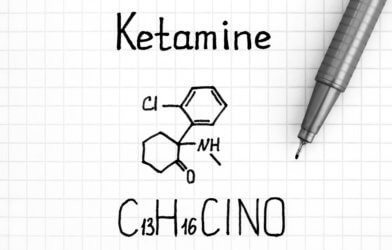Society is slowly changing its perception of psychedelics. Recently, psilocybin made headlines as a potential treatment for depression, and now a new study suggests it could also help with opioid addiction.
Scientists say that people who took the psychedelic mushroom may be up to 30% less likely to develop an opioid use disorder. The findings suggest psilocybin has a protective effect against multiple symptoms of opioid abuse.
For the study, the team of researchers from Harvard, Yale, and Columbia universities looked at the relationship between opioid use disorder and the use of psychedelics among 214,505 adults between 2015 and 2019. People self-reported their experience with opioids, including abuse or dependence on heroin or prescription pain relievers in the past year, and whether they have taken either psilocybin, peyote, mescaline, or LSD.
Of the almost 200,000 adults surveyed,1% met the criteria for opioid use disorder in the past ear. About 10.4% of people said they used psilocybin at least at one point in their life. Forty-six percent said they recreationally used heroin or prescription pain relievers at least once in their life.
People who used psilocybin were 30% less likely to have an opioid use disorder in the past year. Additionally, people who used psilocybin were 17% and 34% less likely to have seven of 11 symptoms associated with opioid dependence and abuse than those who never used it. The team did not find any significant association between peyote, mescaline, or LSD and opioid use disorder.
While not directly studied, the team speculates that psilocybin’s protective effects could be from its effects on serotonin and dopamine. Both are brain chemicals involved in addictive behaviors. Another possibility is that the mystical or spiritual experience psilocybin causes could be the reason behind a decreased use of opioids. Prior research has shown an association between spiritual beliefs and experiences with positive substance abuse recovery outcomes.
The study is published in the journal Scientific Reports.












